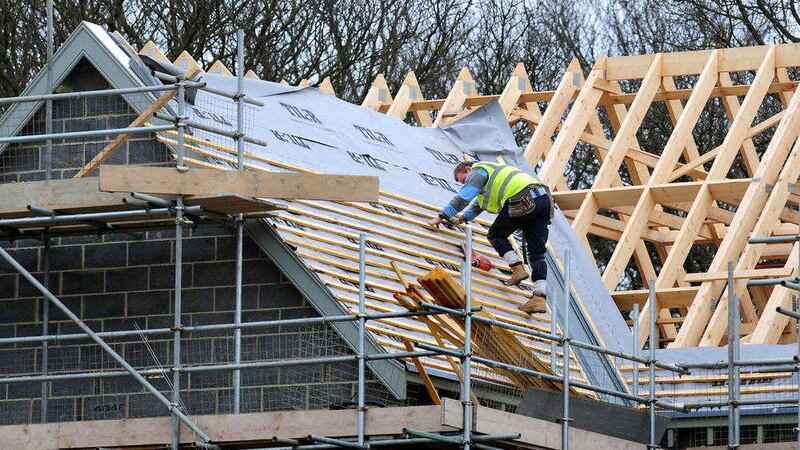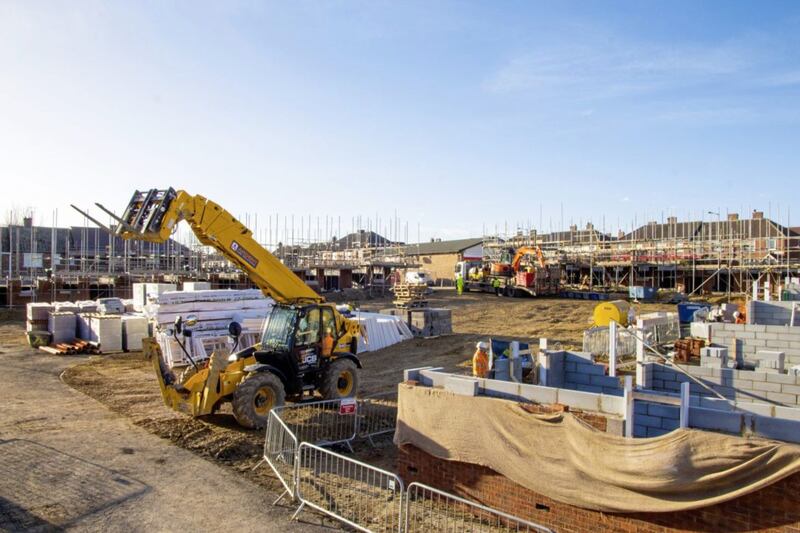HAVING come through some of the worst years ever recorded, the Northern Ireland construction industry has seen significant signs of improvement in recent months. While the outlook for the industry is certainly more optimistic, there remain a number of serious challenges ahead. One of the biggest is, without doubt, the lack of sufficient housing supply.
Residential property sales in Northern Ireland have been showing signs of improvement over the last year. According to RICS, some areas of Northern Ireland have seen an 11 per cent rise in house prices due to growing demand and a lack of adequate supply. Last year, the opening of a new development of houses on the site of the old Belvoir Park Hospital in Belfast saw the first queue to buy new homes in over nine years.
So what is the problem? Well the population of Northern Ireland has now grown to some 1.8 million people and as expected demand for housing is rising alongside this. The reality however is that we are falling well short of the target number of new homes that we need to build each year to support this growing population.
In this context, I recently chaired a Housing Supply Forum which was established by the Minister for Social Development and tasked with making some recommendations as to how we can facilitate the building of more new homes in Northern Ireland.
There are two principal reasons why house building is vitally important. The first and most obvious is the need to provide decent homes for all our people. This includes the constant requirement to replace our older housing stock. The second reason which is often overlooked is the profound stimulus that house building provides to Northern Ireland’s broader economic growth. (Every pound invested in building a house generates approximately a further three pounds in the wider economy).
The government's Housing Growth Indicators developed as part of the Regional Development Strategy identified an estimated need for some 190,000 new dwellings to be constructed in Northern Ireland over the period 2008-2025. This equated to approximately 11,200 new homes per year. These figures are currently the subject of a review that will in all probability result in a reduction of the overall requirement.
However, even if we are to replace 1 per cent our total housing stock each year we would still need to build a minimum of some 7,700 units annually. On top of that, our ongoing failure to meet the current indicator requirements over recent years has resulted in the building up of a significant backlog in housing supply.
To put some figures on the problem, in 2014/15, Land and Property Services figures show that a total of only 5,506 new homes were completed (4,558 private houses and 948 social houses). This is less than half of the current new build requirement. Add to this the cumulative backlog that has built up since 2006/07 and you begin to get a flavour of the problem.
So what is to be done? The Housing Supply Forum report (www.dsdni.gov.uk/publications/housing-supply-forum-report) made 10 recommendations that, if implemented, we believe will help to stimulate the house building market. The majority of these recommendations were regarding ways in which the ever increasing burden of regulation could be reduced in a way that would facilitate and encourage the building of more sustainable homes.
We can only hope that the Executive recognise the current problems around housing supply and take urgent steps to implement the recommendations of the Housing Supply Forum. A vibrant house building sector is vital for all our citizens and for our economy.
:: John Armstrong is managing director at Construction Employers' Federation, which has more than 1200 member companies in the north.








